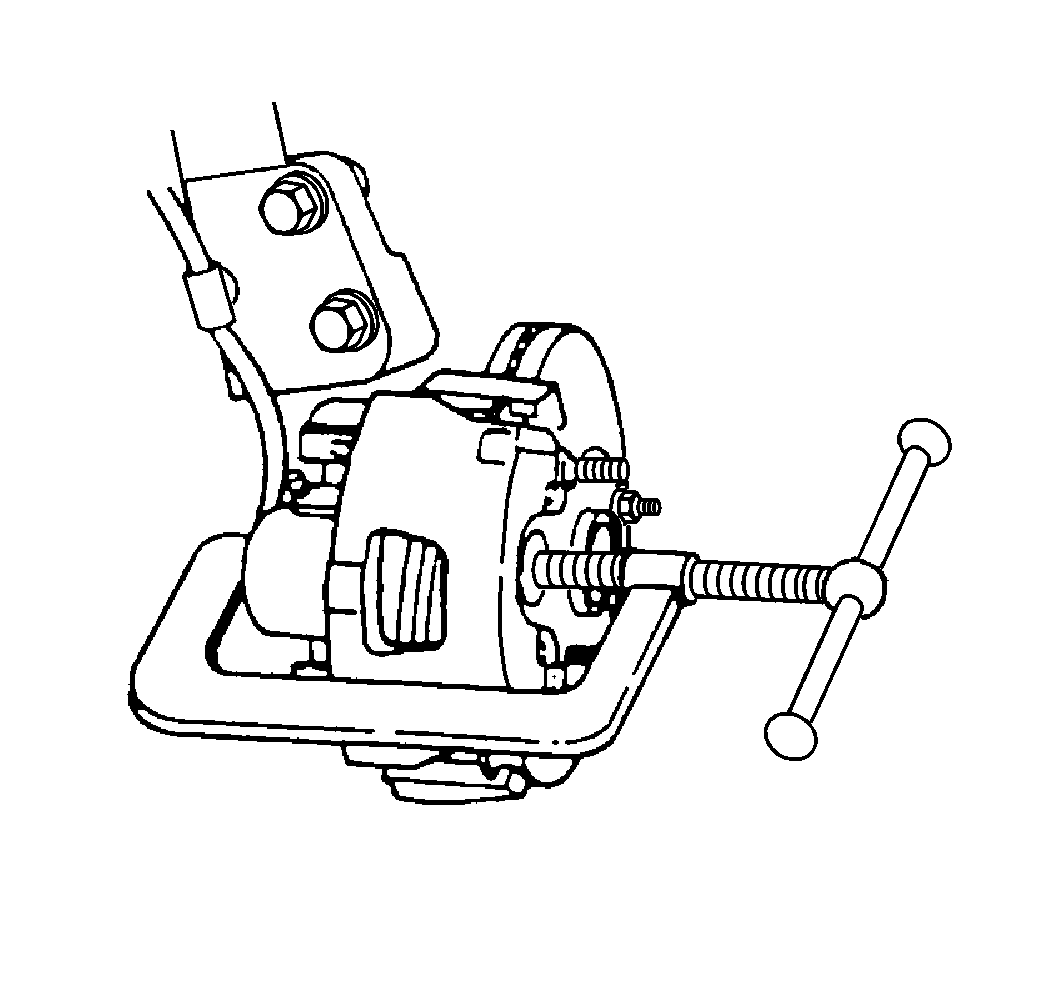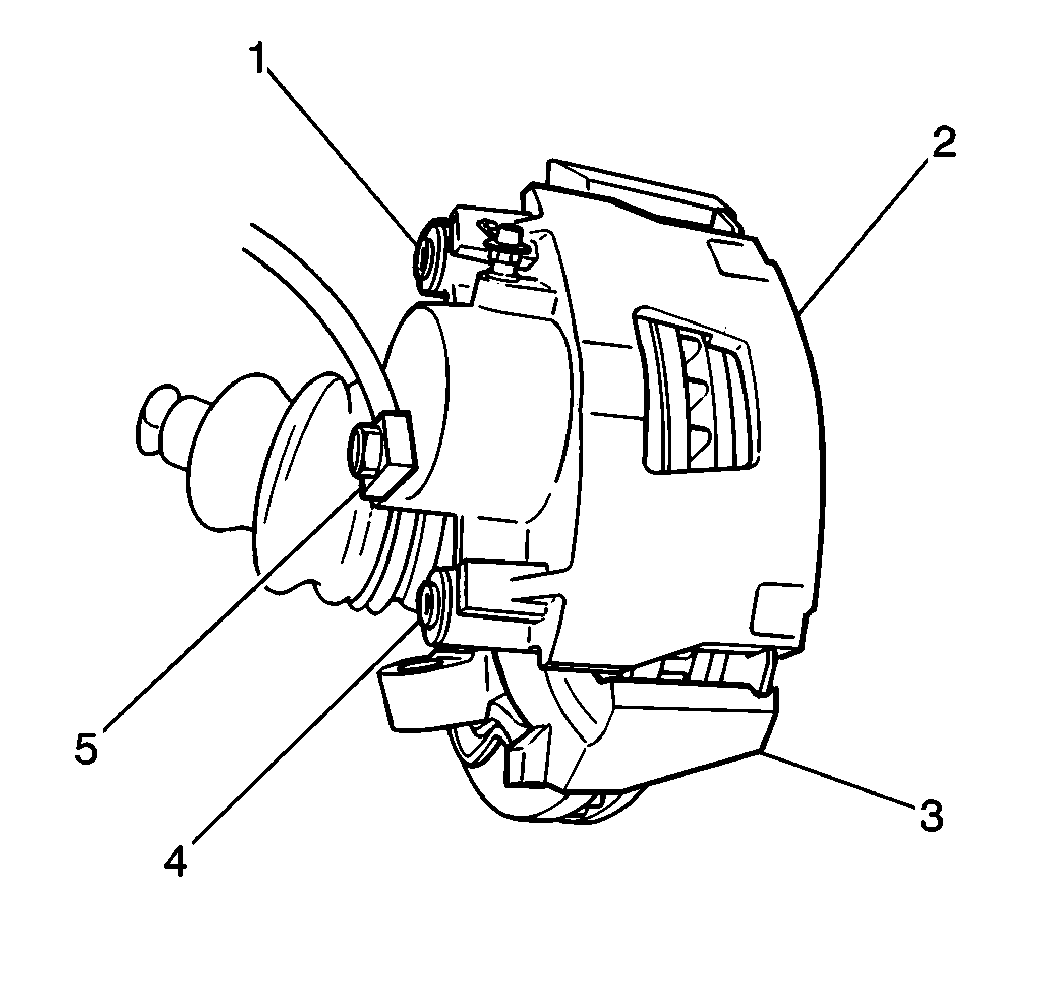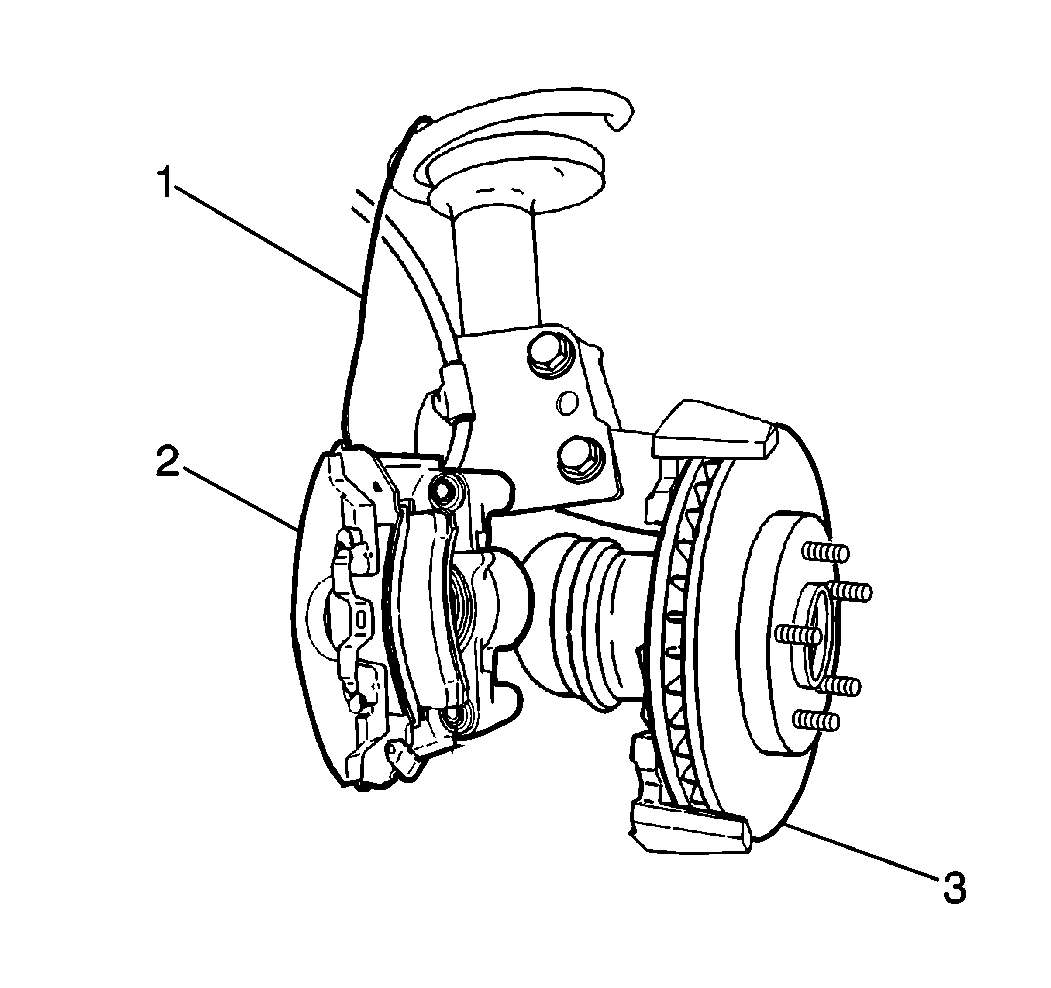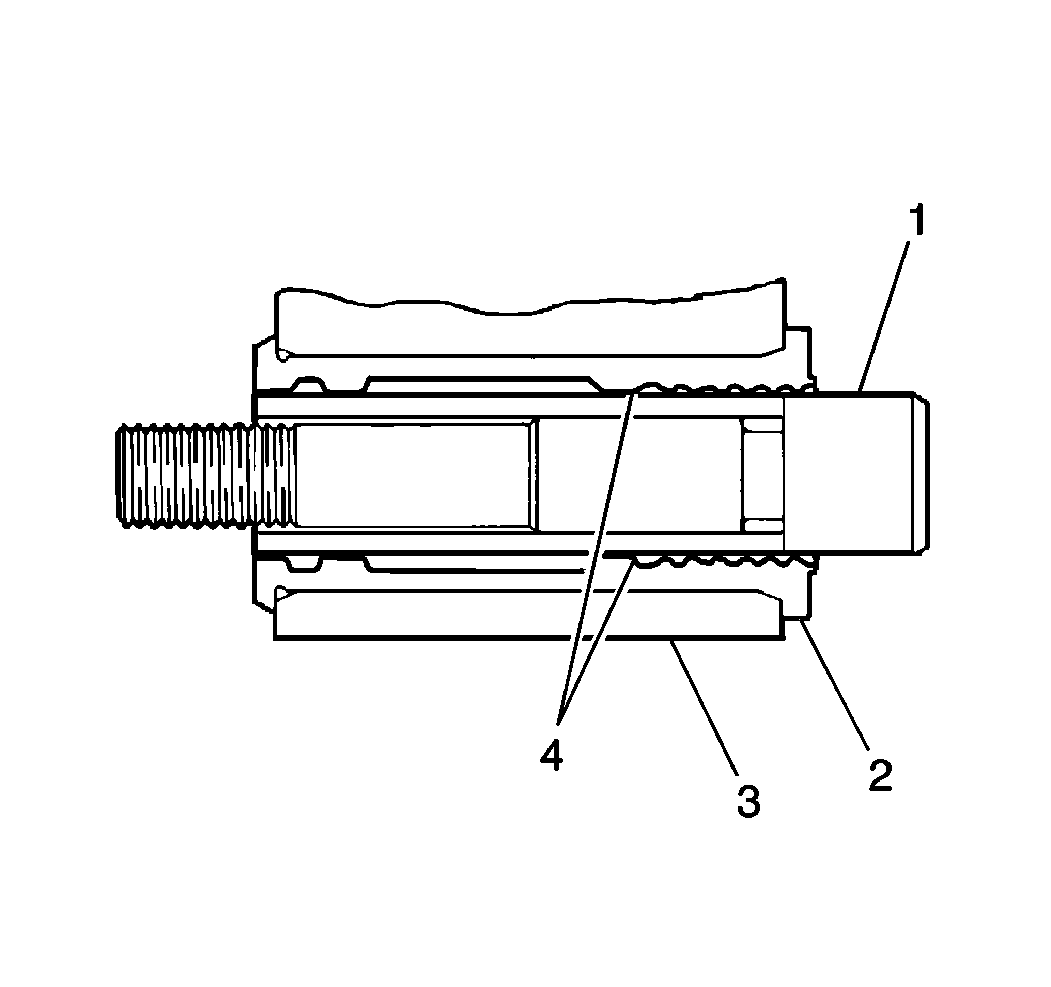Removal Procedure
Caution: Refer to Brake Fluid Irritant Caution in the Preface section.
Notice: Refer to Brake Fluid Effects on Paint and Electrical Components Notice in the Preface section.
- Inspect the fluid level in the brake master cylinder reservoir.
- If the brake fluid level is midway between the maximum-full point and the minimum allowable level, then no brake fluid needs to be removed from the reservoir before proceeding. If the brake fluid level is higher than midway between the maximum-full point and the minimum allowable level, then remove brake fluid to the midway point before proceeding.
- Raise and support the vehicle. Refer to Lifting and Jacking the Vehicle in General Information.
- Mark the relationship of the wheel to the hub and bearing assembly in order to ensure proper wheel balance upon reassembly.
- Remove the tire and wheel assembly. Refer to Tire and Wheel Removal and Installation in Tires and Wheels.
- Install a large C-clamp over the top of the caliper housing and against the back of the outboard shoe.
- Remove the bolt that attaches the inlet fitting (5).
- Remove the caliper mounting bolts (1) and (4) sleeve assemblies.
- Remove the caliper from the rotor and knuckle (2).
- Inspect the mounting bolts (1) and sleeve (4) assemblies for corrosion.
- Inspect the bushings (2) for cuts and nicks.
- If damage to either part is found, replace with new parts when you install the caliper.
Reinstall two wheel nuts in order to retain the rotor to hub and bearing assembly.

Slowly tighten the C-clamp until the piston is pushed into the caliper bore enough in order to slide the caliper assembly off the rotor.

Plug the exposed inlet fitting (5) in the caliper housing and the brake hose in order to prevent fluid loss and contamination.


Important: Do not attempt to polish away corrosion.
Installation Procedure
- Liberally coat the inside of the diameter of the bushings (4) with silicone grease (4).
- Install the mounting bolts (1) and the sleeve (4) assemblies together.
- Install the caliper (2) over the rotor into the knuckle.
- Install the inlet fitting (5).
- Perform the following steps in order to install the wheel and tire, aligning the previous marks:
- Bleed the hydraulic brake system. Refer to Hydraulic Brake System Bleeding in Hydraulic Brakes.
- With the engine OFF, gradually apply the brake pedal to approximately 2/3 of its travel distance.
- Slowly release the brake pedal.
- Wait 15 seconds, then repeat steps 7 and 8 until a firm brake pedal is obtained. This will properly seat the brake caliper pistons and brake pads.
- Fill the master cylinder to the proper level with clean brake fluid. Refer to Master Cylinder Reservoir Filling in Hydraulic Brakes.


Notice: Use the correct fastener in the correct location. Replacement fasteners must be the correct part number for that application. Fasteners requiring replacement or fasteners requiring the use of thread locking compound or sealant are identified in the service procedure. Do not use paints, lubricants, or corrosion inhibitors on fasteners or fastener joint surfaces unless specified. These coatings affect fastener torque and joint clamping force and may damage the fastener. Use the correct tightening sequence and specifications when installing fasteners in order to avoid damage to parts and systems.
Tighten
Tighten the mounting bolt and sleeve assemblies to 51 N·m (38 lb ft).

Tighten
Tighten the inlet fitting to 44 N·m (32 lb ft).
| 5.1. | Remove the two wheel nuts securing the rotor to the hub and bearing assembly. |
| 5.2. | Install the wheel and tire assembly. Refer to Tire and Wheel Removal and Installation in Tires and Wheels. |
| 5.3. | Lower the vehicle. |
